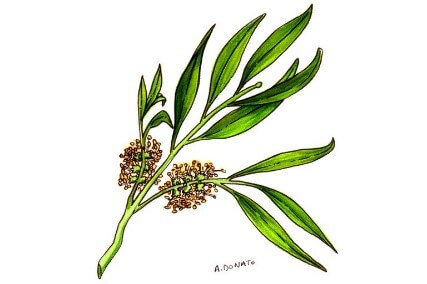Therapeutic constituents:
Ursolic acid isolated from chloroform extract and piceatannol and oxyresveratrol from methanolic extract, are identified as active compounds1.Ursolic acid isolated from the chloroform extract and piceatannol and oxyresveratrol isolated from the methanolic extract, are identified by Cajuput Oil as active compounds (Chemistry and Pharmaceutical Bulletin, 39. 1991). The constituents alpha-terpineol and linalool exhibit antimicrobial activity (cited in Rational Phytotherapy).
Pharmacology
The Essential oil exhibited anti-inflammatory, analgesic, antifebrile, antibacterial and expectorant activities. It has anti-dandruff activity.
Toxicology
No adverse effect was reported on the usage of this plant.
Key therapeutic benefits:
It acts as an anthelmintic. It is also effective against lice.Common sore throats, coughs, runny nose and severe respiratory ailments such as asthma, tuberculosis, and bronchitis can be treated with Cajuput Oil.The oil has antibacterial, antifungal and antiviral properties, which quickly heal superficial wounds.
Used in Orgado, Fem Org
References
- Pharm. Bull., 1991, 39, 3276.


